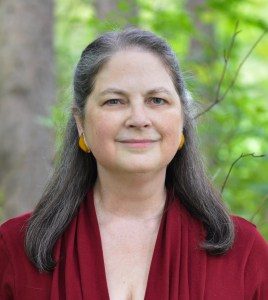
US indie author Karen Myers shares her own experience of skilling up (Photo: Sarah Dane 2017)
No matter how great your writing, if you never take much time and trouble to look beyond your manuscript, you'll never make the most of the potential that self-publishing offers you.
US fantasy novelist Karen Myers explains how she took a year off writing to raise her game – counter-intuitive, perhaps, but highly effective in growing the success of her indie author business. Over to Karen to tell you how and why she has taken a year out to get educated – and get ahead…
There’s more to being an indie than the love of writing
We come to self-publishing out of a love of writing, but if we stop there, and go no further, then we risk never developing our writing into a full-fledged business.
Writing itself can be such a challenge that it’s tempting to postpone dealing with some of the other challenges in becoming a fully-developed self-publisher.
Certainly, without the writing, you have no product. But without the rest of it, you have no business.
Now, not everyone wants to build a business, and that’s fine, but for the rest of us…
It's All About Balance
I published my first book five years ago. As I look back, I can see all the places where I invested in things beside my writing.
If I had done nothing but write, I’d have several more books – but then, I’d probably be selling fewer of them, in fewer places, in fewer formats, and I’d be less prepared to support my new books as they emerge.
On the whole, I recommend balance between the writing and everything else.
It helps that I have a technical background and some experience with professional photography, so investing in things like learning how to format my own books and make my own covers (out of someone else’s background art) came relatively easily to me. So did building my first websites, one as a publisher (Perkunas Press) and one as a platform for other writing friends (HollowLands). That held me for the first couple of years as I tooled up and kept my costs down.
But I face learning curves, too, just like all of us, and my biggest are:
- Product availability (format & distribution)
- Marketing
- Learning the deep processes of the traditional publishing trade
Product Availability
This means getting our initial product out in all the formats (ebook, print, audio, etc.) possible, and with as wide a distribution as possible.
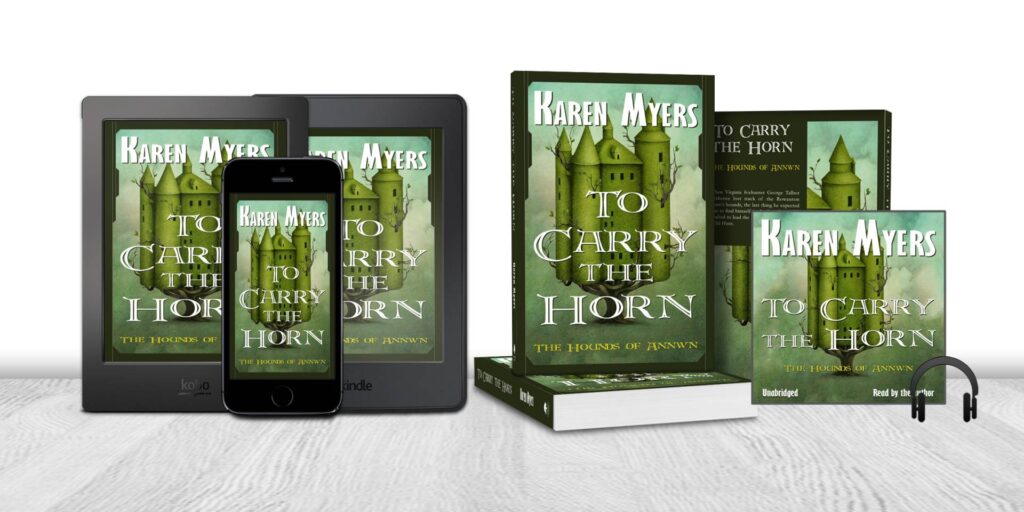
Display of available formats for To Carry the Horn, book 1 of The Hounds of Annwn. Written by Karen Myers (HollowLands.com). Published by Perkunas Press (PerkunasPress.com).
To do this, you need to think of packaging (publishing stories, gathering them into collections, grouping products into bundles, etc.), which is how my eight novels and ten short stories turn into twenty-three titles, each of which has sales.
It’s also why I made my first audiobook investment (self-narrated, commercially recorded) to gain the experience so that I could record the rest of them myself. This is an expensive process, and requires careful planning to minimize the cost.
The most frustrating learning curve in this area was learning more about the distribution options, especially as the industry itself for indie support came into place around us.
You have to know what’s possible before you can go looking for it.
(Even now, library distribution is still effectively closed to most of us.)
I write a lot about distribution in my articles in https://hollowlands.com/category/just-for-writers/, because if our books aren’t somewhere a reader can buy them, what good is it if he sees my marketing?
Marketing
Many different marketing options are open to us, but none of us can do them all. Researching what’s possible, estimating the costs, and learning how each option works can be very significant investments of time.
The old rules of “publish fast, build momentum” are still true, but relying on that alone is no longer a professional approach.
If we were selling toothpaste, we wouldn’t expect to sell much if we didn’t advertise it, and it’s time to recognize that if we want to be professional about book sales, we must take marketing very seriously.
I published the last book of my second series early in 2017 and devoted the entire year to making a serious advance up the marketing learning curve. I retooled:
- my platform (new, commercially branded reader-focused website KarenMyersAuthor.com)
- my author photos
- my book images (freelancer-created Photoshop automation to make bookstack, 3D, and other images)
- my newsletter (more serious newsletter service for supporting landing pages and various campaigns)
- my advertising (paid courses in Amazon AMS ads and Facebook ads)
- my book backmatter (Google Analytics and other tracking)
I believed I now had enough product in hand (two completed series) that it was appropriate to treat them commercially.
Was this worth doing? Here’s the result of doing AMS ads:
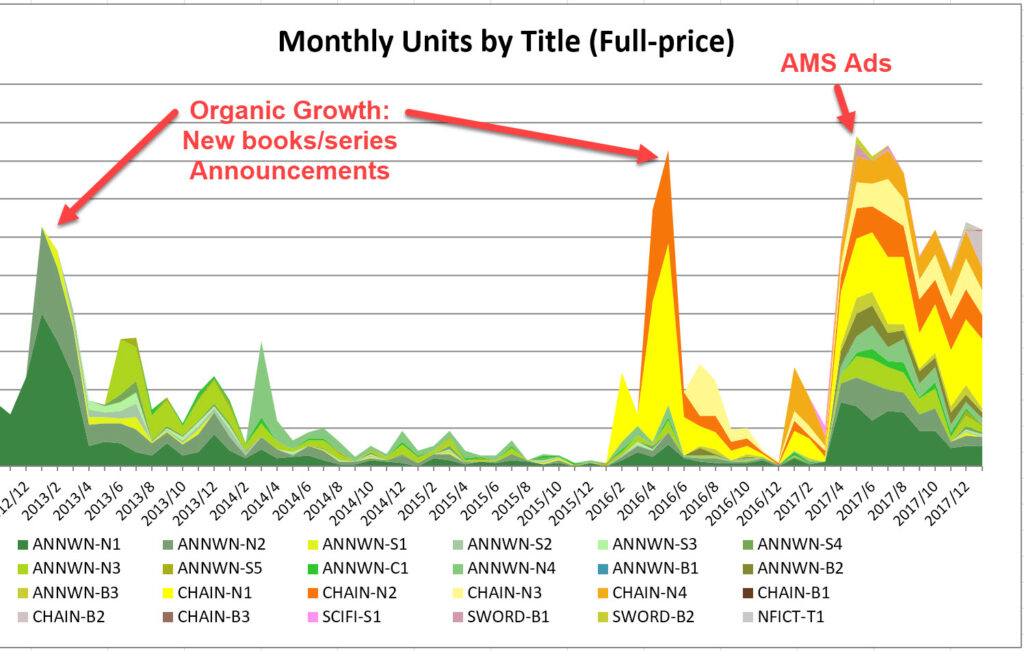
Yes, I think so. I sold more books in the first two weeks of January, 2018, than in all of 2015 as my first series organic sales wound down. And now I know a lot more about how to apply AMS ads to my new series as it builds. Facebook ads are next, and the learning curve associated with doing video for ads.
Trade Publishing Practice
I’m building a long-term business. It’s important to me to understand how the traditional publishers do it, not because I plan to buy properties the way they do, but because I want to understand the tools they use and the expectations of their channel partners, so that I can participate in some of that, too.
As part of my big time investment in 2017:
- I learned about ONIX (data sharing between partners)
- I created four new imprints to support some colleagues in their publishing requirements for genres not currently part of Perkunas Press
- I did some professional consulting for colleagues, which took me into areas new to me while getting paid to learn
You have to look for these opportunities, and you may have to stretch yourself in the process, but you end up each time stronger and better positioned to move forward.
I don’t have entire departments to handle things, like a traditional publisher – I have to do it all myself, or know enough to manage freelancers for the parts I can’t do.
The Bigger Picture
Not everyone needs to develop and grow this way. I had hoped to write in the mornings and do the other work in the afternoons, but I found my 2017 plan was so ambitious that I couldn’t concentrate on writing while I was absorbing all the rest.
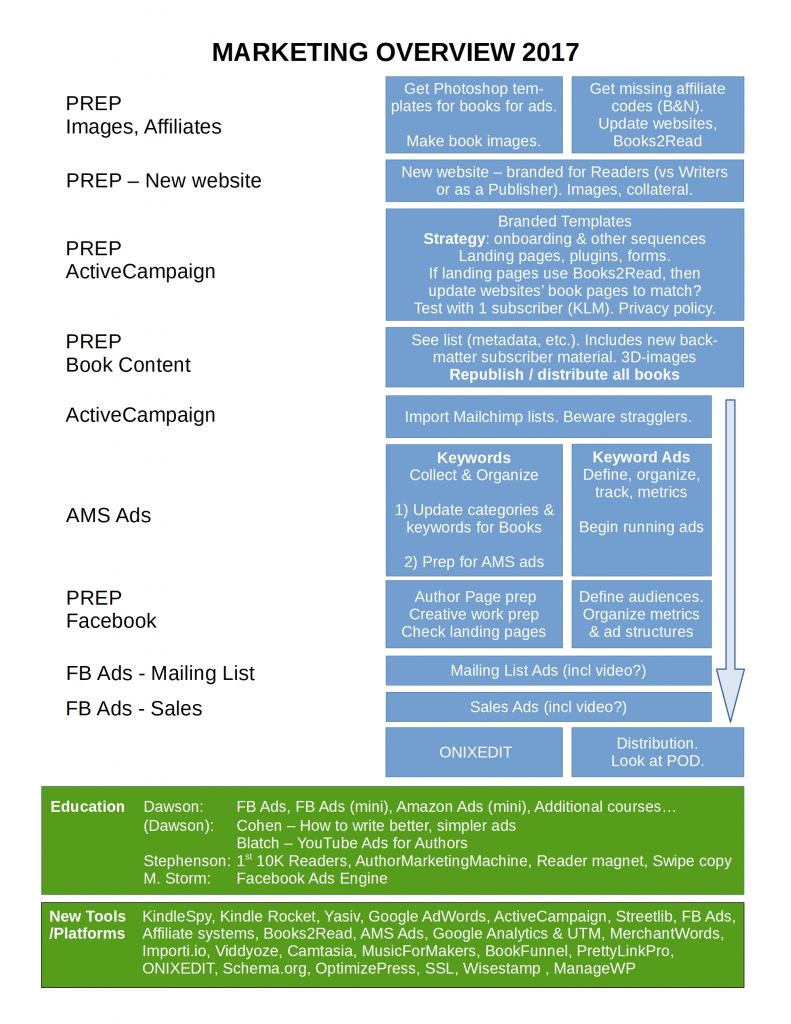
But you need to pause now and then to consider the whole business you’re in, and where you want it to be in, say, five years – not just the writing, but the entire business. You know your weakest skills – fix them!
Make a decision to balance the time spent on your writing with the investment you need to make to become a more professional business, one that can operate for the long term.
OVER TO YOU Have you gone through a similar process? What was your outcome?
#Authors - why you need to stop writing & start learning if you want to sell more #selfpub books - by Karen Myers of @Hollowlands Share on XOTHER GREAT POSTS TO HELP YOU SELL MORE BOOKS
From the ALLi Author Advice Center Archive

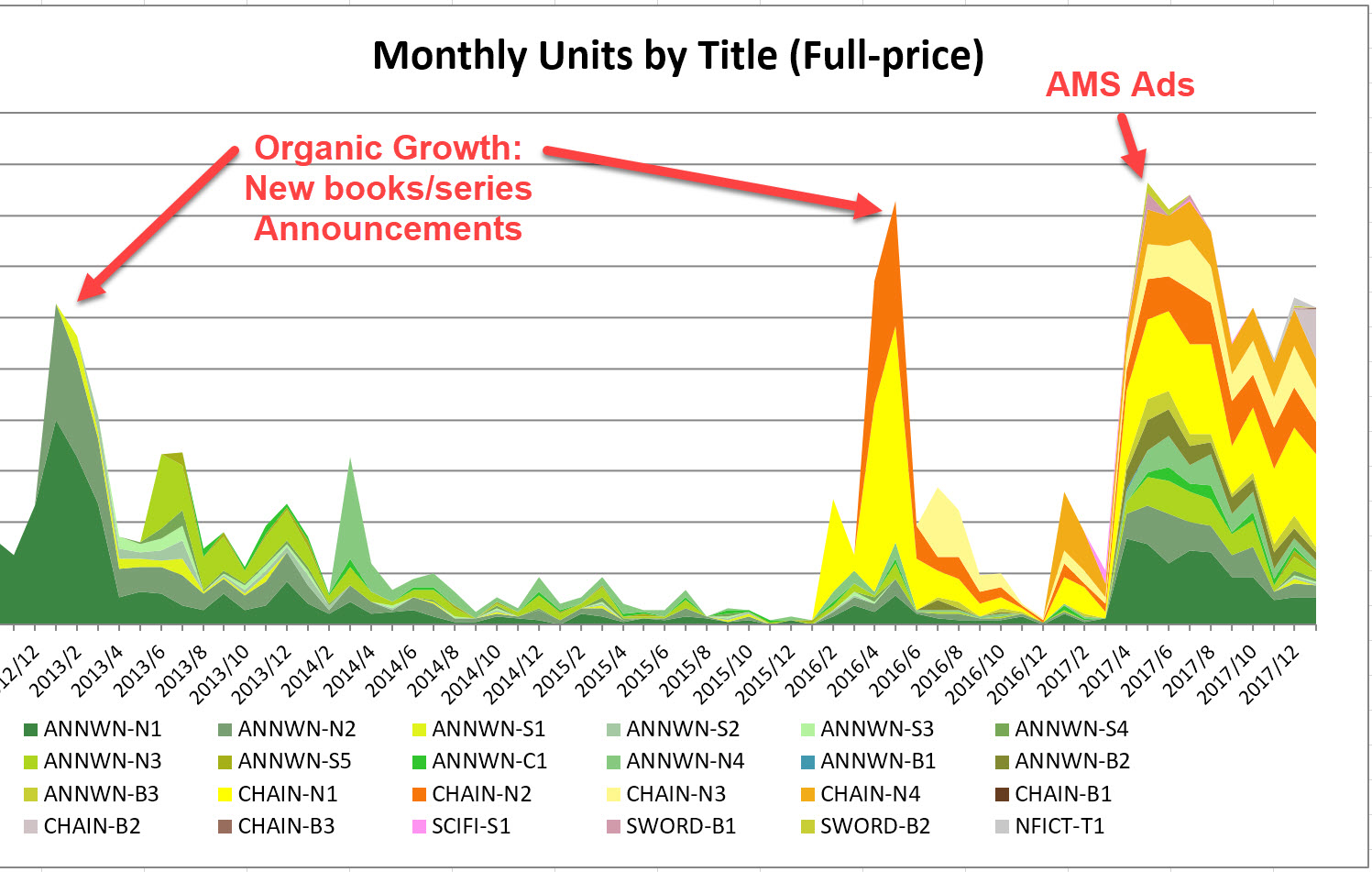



I think I really needed to read an article like this just now when I’ve been reflecting on my recent sales. There’s so much still to learn which could improve those numbers. Thank you for the excellent advice.
Fantastic article. Thanks, Karen. I wondered if you’ve looked into translating your books for foreign markets. I tried that on one of my books using a ‘translator’ from Mexico, with disastrous results, but I may try it again, some day.
I’d like to get my first translation done, to get my feet wet.
OTOH, until I can at least do decently in the British market (I’m a Yank), why would I expect to succeed in non-English?
I’m looking to Facebook Ads (not yet running) to start marketing internationally. The day I start that and begin getting results for English readers in the UK will be the day I start contemplating my first translation seriously, using English-language interest from the FB ads to help determine which language first.
I had a similar experience, but accidentally. An international move and assorted elder care issues disrupted my writing life, but because I had arrangements with designers, editors and so on I couldn’t let the book production get disrupted. Then I had too much stress to write, but was able to market, even if not in quite such an organized way as you did (props to you for that “done” list!) And I still wrote a book, due for release in March. I’ve discovered that I can write in sustained bursts (usually centered around NaNo or Camp NaNo) and market in between writing efforts. Better still, this year I’m trying to set myself up with some paid help, the money for which has come from my successful marketing in 2017.
I still have much to learn on both the writing and marketing sides, of course, and never enough hours in the day. But you’re right–there has to be a balance. 2016 and 2017 forced me to explore that balance and the experience has been enriching (financially as well as in terms of skills).
Karen,
Wow! I applaud your decision to hunker down for a year to accomplish this. And for taking the time to share with other indies. Thank you!